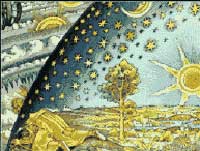|
|||||||||||||||||||||||||||||||||||||||||||||||
| Cosmos and Culture: Science in History - ARTS1301 | |||||||||||||||||||||||||||||||||||||||||||||||

Description Subject Area: History & Philosophy of Science Examines the history of science (including medicine) from antiquity to the twentieth century. It places special emphasis on the role of contextual factors (philosophical, social, political, cultural and technological) in the development and changing character of science over time. The central theme of the course is that all world-views, or accounts of the cosmos, are products of particular cultures, and that we should not expect the science of the past to look like, or be aiming at, our present science. Contextual study of the history of science permits the recognition of distinctive styles of science in the past, thus providing us with access to different ways of seeing (and being in) the world, while also enriching our understanding of the special character of contemporary science. Topics include: historiography of science; Greek and Hellenistic natural philosophy; science in Late Antiquity; Medieval science; Renaissance science; the Copernican Revolution; mechanical philosophy and the 'Scientific Revolution'; Newtonianism and Enlightenment science; natural history and the order of nature; Romantic science and the Counter-Enlightenment; the Darwinian Revolution; laboratory medicine; science and industrial research; the twentieth-century physics revolutions and their impact on philosophy of science; science-based industry and the creation of 'Big Science'; the Cold War and the physics of life; science and globalisation; the 'Science Wars'. |
|||||||||||||||||||||||||||||||||||||||||||||||


